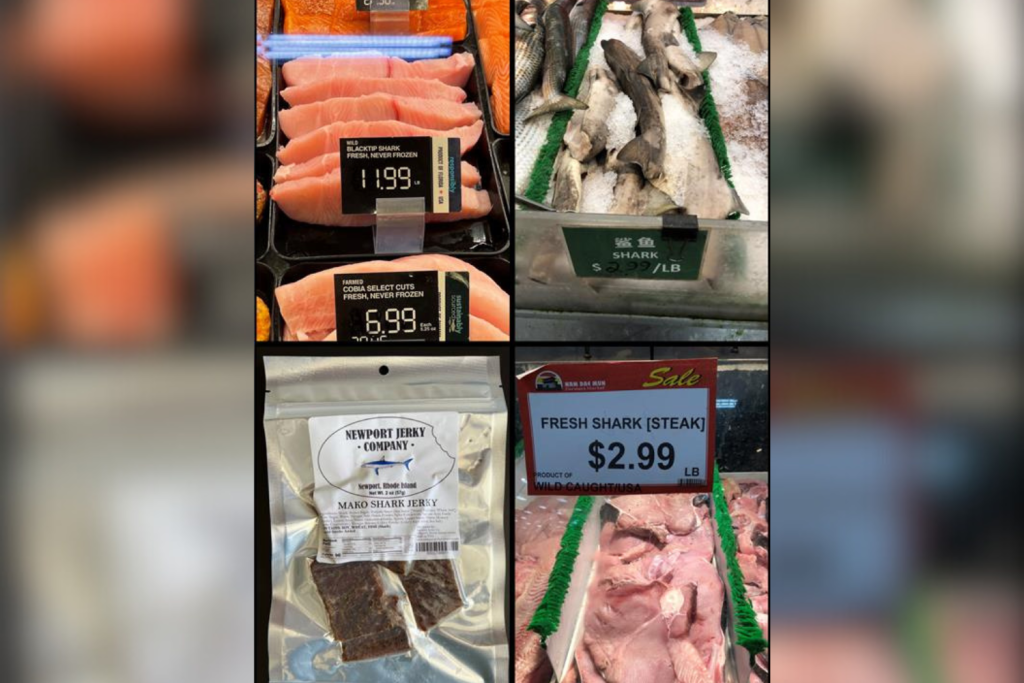Endangered Sharks on Your Plate: The Hidden Crisis in American Seafood
A shocking new investigation reveals that endangered shark species are routinely making their way to American dinner tables, often without consumers having any idea of what they’re actually eating. Researchers from the University of North Carolina at Chapel Hill have uncovered disturbing evidence that shark products sold across the United States frequently come from species facing extinction, raising urgent questions about seafood labeling practices, consumer safety, and wildlife conservation.
The research team, led by Savannah J. Ryburn, employed DNA barcoding technology to analyze 30 shark products purchased in multiple states including Washington D.C., North Carolina, Florida, and Georgia over 2021 and 2022. Their findings paint a troubling picture: nearly one-third of the samples contained meat from endangered or critically endangered shark species. Among these vulnerable species were great hammerhead, scalloped hammerhead, shortfin mako, and tope sharks – all facing severe population declines globally. Perhaps most alarming was the near-universal absence of proper labeling, with 93 percent of samples vaguely marketed simply as “shark” without any species identification. Even among the rare products that attempted species-level labeling, half were incorrectly identified, making it virtually impossible for even conscientious consumers to make informed choices about what they’re purchasing and consuming.
The implications extend far beyond misleading marketing practices into serious public health territory. Several shark species commonly found in the food supply, particularly hammerheads and smooth-hounds, contain dangerous levels of neurotoxins including mercury, methylmercury, and arsenic. These contaminants are known to cause devastating health effects ranging from brain and nervous system damage to cancer and impaired fetal development. This alarming confluence of mislabeling and toxin exposure means many Americans may be unknowingly ingesting harmful substances when consuming shark products. The pricing structure further complicates matters, with researchers documenting enormous variations – fresh shark meat selling for as little as $6.56 per kilogram while shark jerky commanded prices exceeding $200 per kilogram, suggesting significant market confusion and potential for fraud throughout the supply chain. This problem extends beyond human food, with a separate 2022 study discovering endangered shark meat in pet food products, typically disguised under generic terms like “white fish” or “ocean fish.”
The findings take on greater urgency against the backdrop of a global shark conservation crisis. Shark populations worldwide have plummeted by more than 70 percent since the 1970s, victims of a perfect storm of threats including accidental bycatch, climate change impacts, habitat destruction, and deliberate overfishing. According to the International Union for Conservation of Nature (IUCN), more than a third of all shark species now face extinction threats. While international protection efforts exist – including 74 shark species listed under the Convention on International Trade in Endangered Species (CITES) – enforcement remains woefully inadequate. The processing of sharks into fillets, jerky, and other products removes identifying features, creating major loopholes in trade restrictions. Once processed, visual identification becomes virtually impossible, allowing endangered species to move through commercial channels with minimal oversight. This difficulty in identifying processed shark products presents a fundamental challenge for both regulators and consumers trying to make responsible choices.
“The legality of selling shark meat in the United States depends largely on where the shark was harvested and the species involved,” explained lead researcher Ryburn. “By the time large shark species reach grocery stores and markets, they are often sold as fillets with all distinguishing features removed, making it unlikely that sellers know what species they are offering.” This knowledge gap exists throughout the supply chain, with many retailers themselves unaware of exactly what species they’re selling. The researchers argue that this situation demands stronger regulatory intervention, specifically calling for mandatory species-level labeling requirements that would close existing loopholes. Such measures would simultaneously protect vulnerable shark populations and give consumers the information needed to make healthier, more sustainable choices. While some shark consumption occurs in communities where it represents an important food security resource, the researchers particularly urge consumers in other contexts to avoid shark products lacking species identification or traceable sourcing.
The study ultimately reveals a critical intersection of conservation ethics, public health concerns, and consumer rights. As shark populations continue declining worldwide, the continued sale of endangered species in American markets represents a troubling failure of market transparency and environmental protection. Without immediate improvements to labeling practices and enforcement, consumers will remain unwitting participants in both a wildlife conservation crisis and a potential public health threat. The solution requires coordinated action from regulatory agencies, retailers, and informed consumers demanding better information about seafood products. Until such changes occur, the next shark fillet appearing in your local supermarket might very well come from a critically endangered species – one of the ocean’s most important and threatened predators, quietly disappearing from our seas even as it continues appearing on our plates. For consumers concerned about both personal health and environmental impact, the researchers’ advice is clear: unless a shark product carries specific species identification and transparent sourcing information, the most responsible choice is simply to leave it on the shelf.















